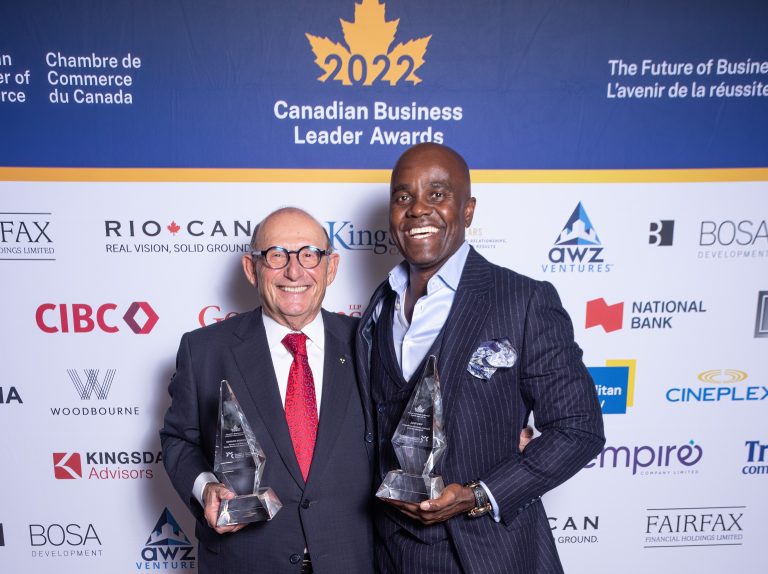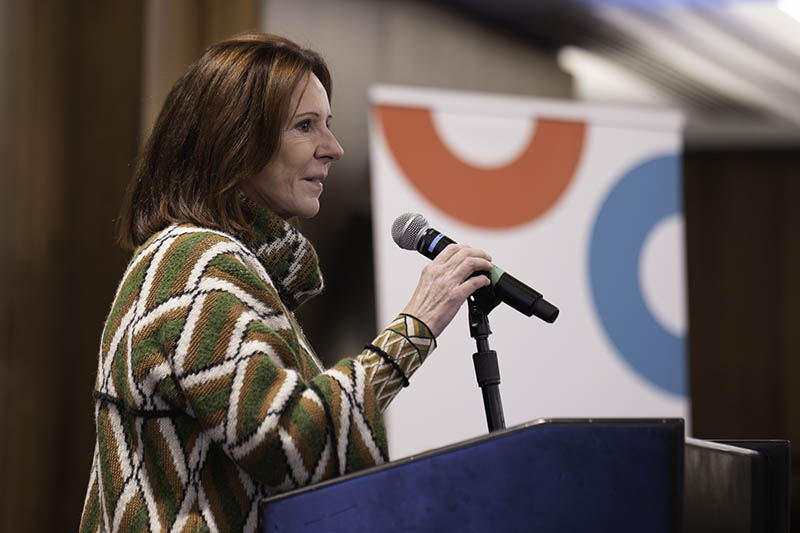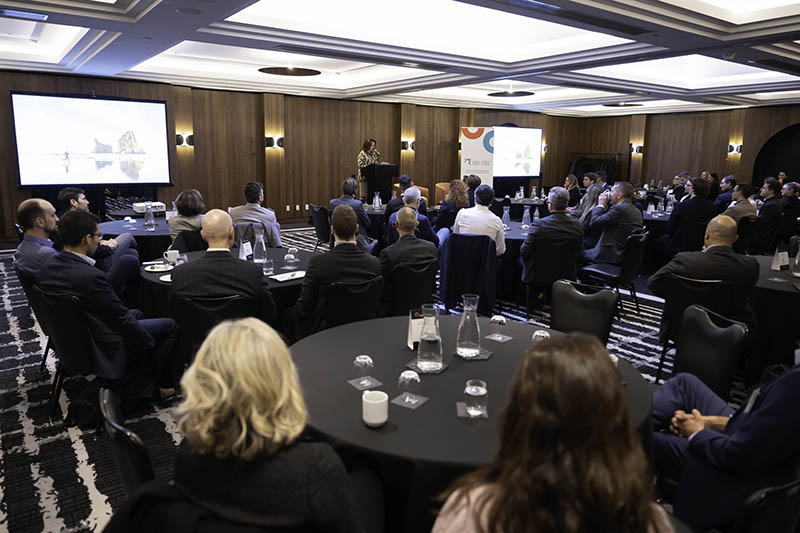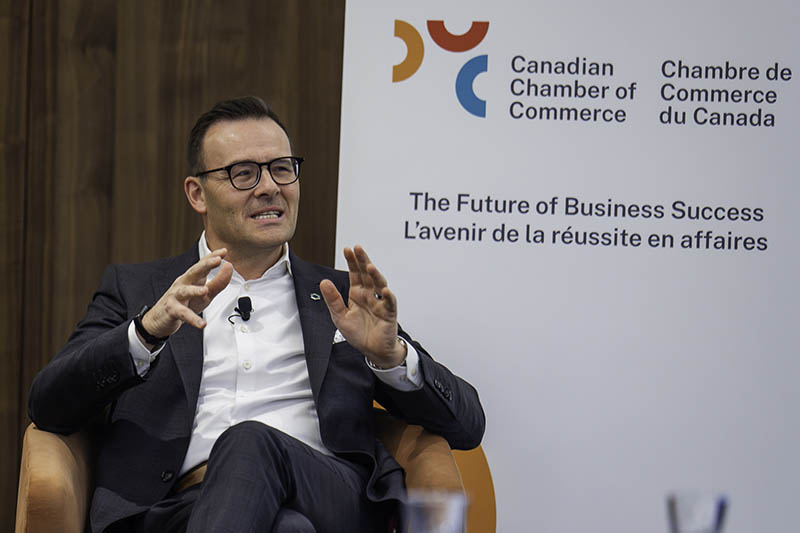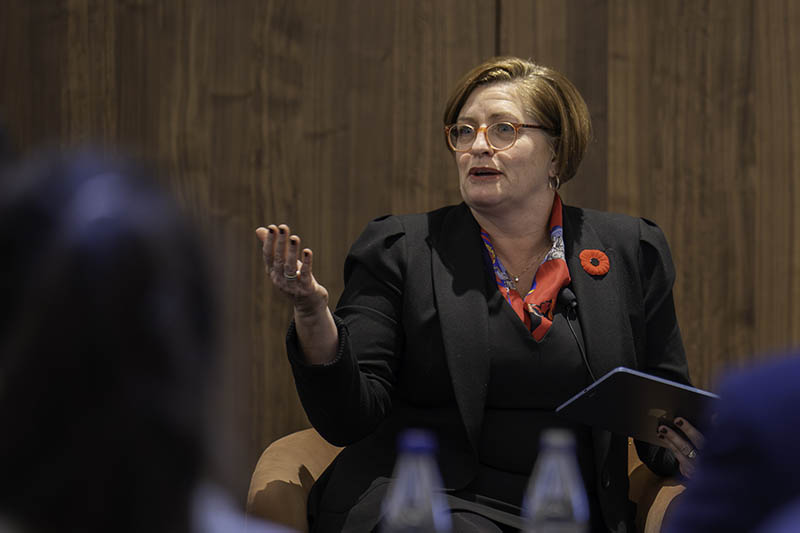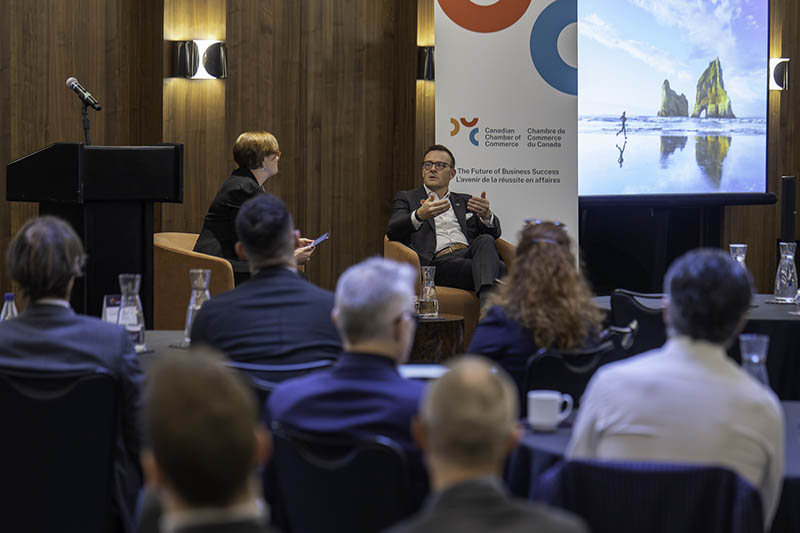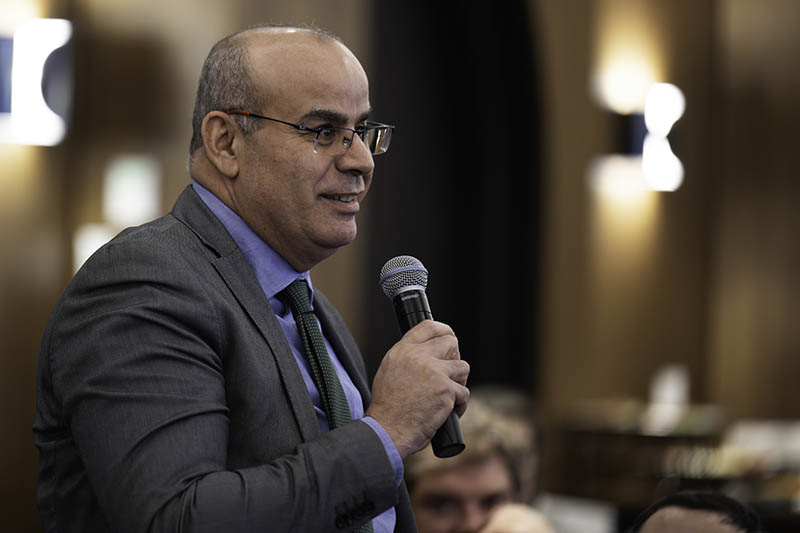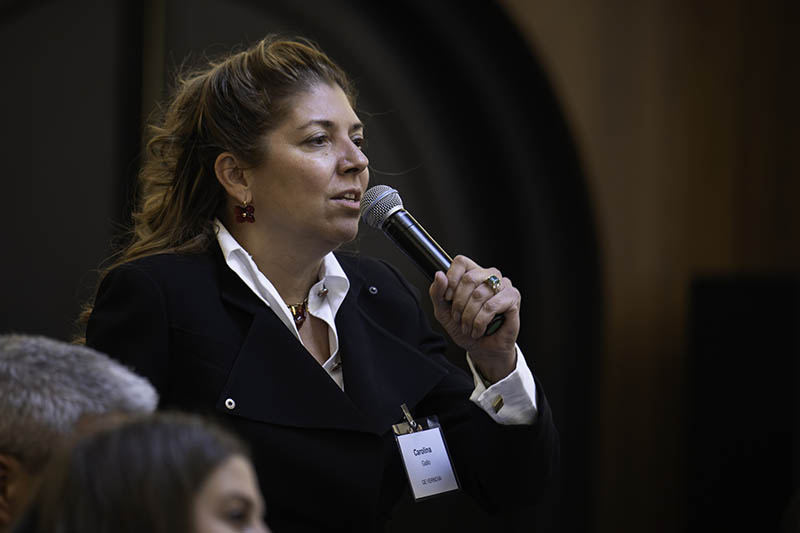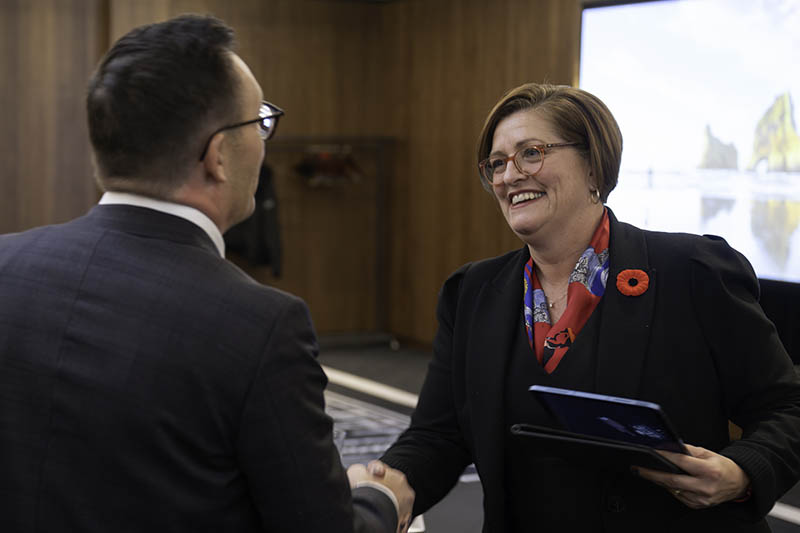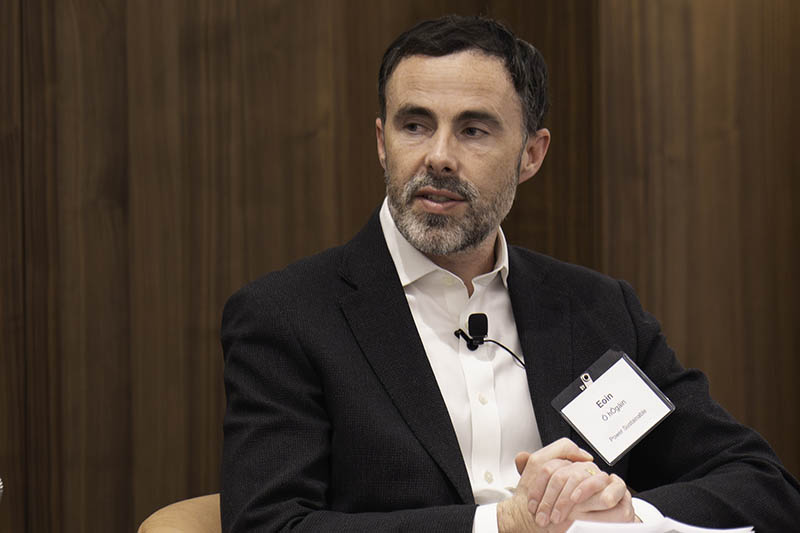Blog /
Navigating the Green Transition: Insights from our Green and Transition Finance Executive Summit
Navigating the Green Transition: Insights from our Green and Transition Finance Executive Summit
This critical summit examined the evolving landscape of sustainable finance, addressing the imperative for a credible taxonomy and aligning climate disclosures with international standards.
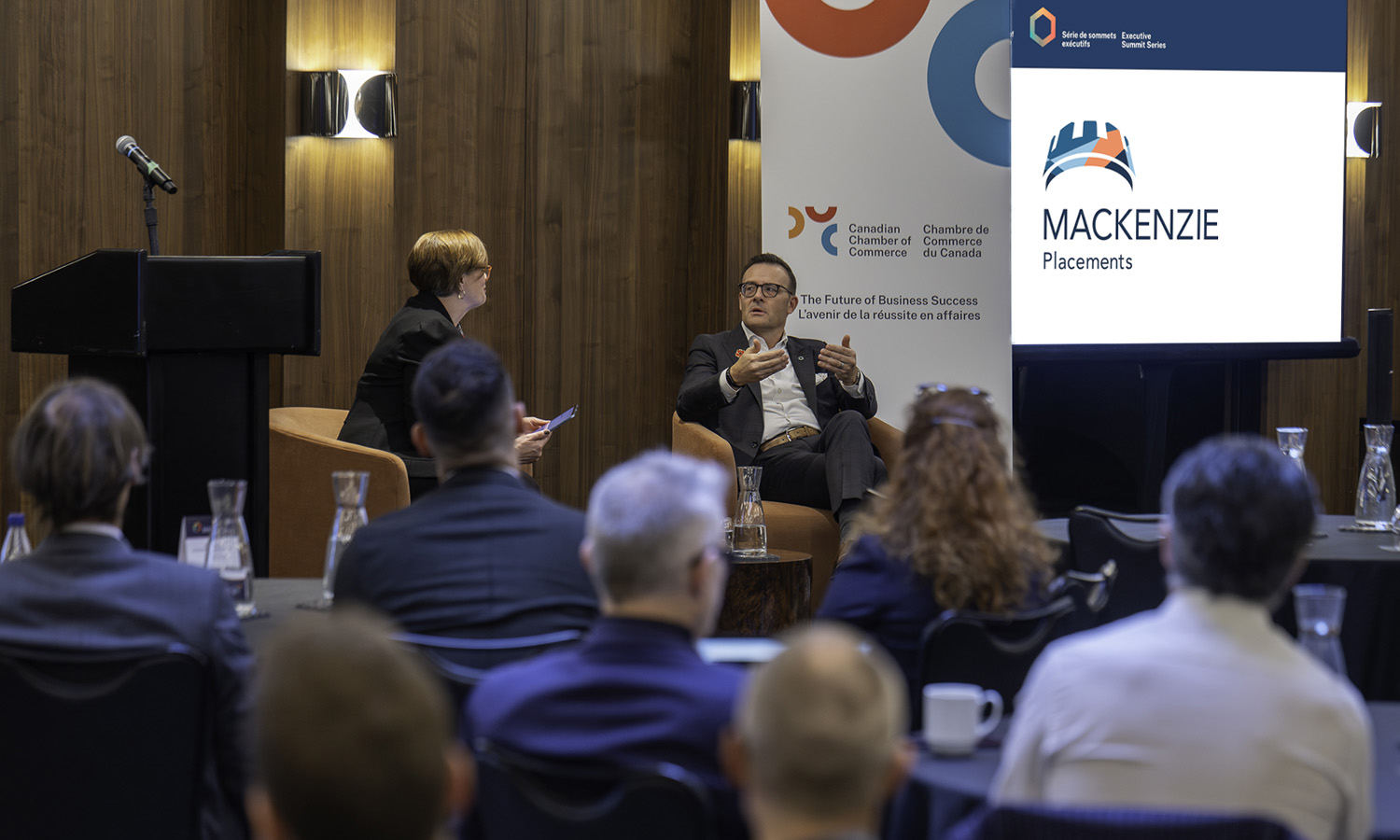
On November 9, 2023, the Canadian Chamber of Commerce brought together industry leaders, experts, and stakeholders at the Vogue Hotel Montreal Downtown, for the Green and Transition Finance Executive Summit.
This critical summit examined the evolving landscape of sustainable finance, addressing the imperative for a credible taxonomy and aligning climate disclosures with international standards. The summit aimed not only to dissect challenges but also to explore opportunities for small and medium-sized businesses amid transformative reforms.
Keynote Fireside Chat and Panellists
The summit commenced with a fireside chat with Guy Cormier, President and CEO of Desjardins Group, who shared insights into the economic outlook during an engaging conversation moderated by Milla Craig, President and CEO of Millani. This dynamic exchange set the stage for a distinguished panel discussion that included Fate Saghir (Mackenzie Investments), Bruno Caron (Miller Thomson LLP), Eoin Ó hÓgáin (Power Sustainable), Matthew Seddon (Sun Life Financial), and Florian Roulle (Finance Montréal). Together, they explored the challenges and opportunities surrounding the green transition in Canada.
Key Themes and Insights

Economic Landscape and SMEs
The consensus among experts indicated an anticipated mild global recession within the next 8-12 months, with the exception of the U.S. Small and medium-sized enterprises (SMEs) were counselled to shift their focus toward analyzing their financial performance and fundamentals instead of emphasizing growth strategies. The discussion also offered insights into the changing landscape of interest rates, emphasizing that the historic low rates of the past ~25 years are unlikely to resurface. Factors such as the aging baby boomer generation, shifts in global trade dynamics (especially with Asia), and the impact of regional conflicts contribute to a complex economic landscape.

Green Transition and SMEs
The crucial need for SMEs to adjust to the demands of sustainability emerged as a central theme, presenting both challenges and opportunities. While regulatory pressures and sustainability targets can present significant challenges, embracing the green transition also offers financial incentives and an opportunity for SMEs to distinguish themselves.

Balanced Approach to Transition
The discussions underscored the inevitability of the green transition, propelled by regulatory pressures and the advocacy of younger generations. Striking a balance between accelerating the transition and being sensitive to resource industries that support Canadians emerged as a complex but necessary objective.

Navigating “Greenwashing” and Opportunities in Transition
The absence of clear, universal standards and taxonomy has raised concerns about “greenwashing” within the business community. Differing methodologies employed by auditing firms often lead to divergent sustainability assessments. This discrepancy creates a climate of apprehension among businesses, discouraging them from openly discussing their sustainability endeavors for fear of being labeled as engaging in “greenwashing.” Conversely, embracing robust ESG practices has emerged as a crucial avenue for businesses to access new sources of capital. The shift towards sustainability not only aligns with global best practices but also stimulate the development of innovative, sustainable technologies.

ESG Disclosures, Taxonomy, and Capital Mobilization
The panel discussion examined critical areas demanding attention. The absence of standardized ESG disclosures emerged as a pressing concern, signaling the necessity for a unified framework to assess the sustainability records of businesses. The call for a transition taxonomy – a classification system defining criteria for business activities aligned with green transition objectives – was also underscored. Presently, Canada is experiencing an investment shortfall related to the transition compared to other jurisdictions like the U.S. and the EU. The discussion highlighted the urgency for coordinated efforts between the federal and provincial governments to mobilize investments in alignment with the green transition.

Use of Taxonomies in the Financial Sector and Expectations for COP
Discussions delved into the application of taxonomies to assess ESG practices, drawing parallels with the EU’s three-tier system. There was a widespread acknowledgement of the necessity to move beyond net-zero, aligning taxonomies with other jurisdictions to prevent regulatory arbitrage. Participants expressed tempered expectations for COP 28 amid ongoing conflicts, emphasizing the ongoing focus on achieving a just transition.
Future Progress
The Green and Transition Finance Summit offered in-depth insights and a nuanced understanding of the challenges and opportunities associated with Canada’s green transition. With a unanimous call for coordinated efforts, standardized disclosures, and mobilized investments to promote sustainability in the Canadian business landscape, the summit established the foundation for the trajectory of the green and transition finance landscape in the coming years.
We would like to acknowledge that this summit took place on the traditional territory of the Algonquin Anishnaabeg People. The Canadian Chamber of Commerce recognizes and appreciates their historic connection to this place. We also value the contributions that Inuit, Métis and other Indigenous Peoples have made, both in shaping and strengthening this community, province and country.
2023 Executive Summit Series
Our Executive Summit Series gives us the opportunity to take a deep dive into issues our political leaders need to consider to ensure public policies drive business success.
Each event will ignite insightful conversations with some of Canada’s most influential business leaders and government officials, as we strive to meet our biggest challenges: the future of people, technology, trade and climate.
Gain More Impact
We are at our best as a network when we connect, learn and discover through the many in-person and virtual events, webinars and gatherings we host.
Thank You to Our Event Sponsors

Thank You to Our Excellence Level Partners

Related News

Employee Education is a Critical Defence Against Cyber Attacks

How Your Organization Can Quantify and Reduce Your Cyber Risk
